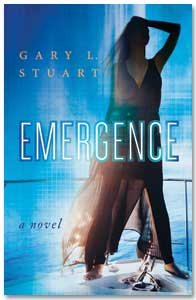Are there ethical concerns, constraints, or norms when we write about death? This blog was prompted by the deathly serious question posed by the author of a NY Times article on December 20, 2020—“What is Death?”[1] Dr. B.J. Miller posed his question because “This year has awakened us to the fact that we die. We’ve always known it to be true in a technical sense, but a pandemic demands that we internalize this understanding.” It’s a splendid read, written by an expert on death. The metaphor that came to mind as I read it was a pandemic casino, where millions of us are standing in line waiting to cash in our chips.
This blog is not about death, the noun; it is about the ethics of writing about it. An incalculable number of others have written about death in our COVID-19 pandemic. But few write about the ethics of writing about death.
In 1968, a Harvard committee tried to update our thinking on the thing itself—death. Dr. Henry Beecher,[2] a renowned bioethicist, chaired the committee. Dr. Beecher’s committee, in a report titled A Definition of Irreversible Coma,[3] defined a new state of death — brain death — in which patients had no basic reflexes, were unconscious, unresponsive to pain, and unable to breathe on their own.
So, here we have a modified noun expressing the clinical state—brain death. That’s not what most people focus on when they hear or see the word death. Their focus is on actual death, the end of life, and the dead person. Death and dying, in the bioethics context, is always daunting.
Death begets moral issues, starting with what physicians have to decide, including conceptual notions about exactly when death occurs, to moral issues about what they are allowed or obligated to do to keep a patient alive. The quality of life and the right to die create ethical dilemmas. Everyone on their deathbed faces the ultimate dilemma—choosing between two or more equally undesirable alternatives. That may be the first ethical norm in writing about death—should the author align with the alternative chosen by the deceased or the alternative hoped for by the family? When writing about death, may authors assert their own ethical assessment about euthanasia?
Bioethics was born around the issue of death. Technological advances in healthcare allow sustained biological life beyond when the patient would have died without medical intervention. On the brink of death, patients, their families, physicians, and clergy engage in end-of-life decision-making. When we write about that, are we writing just about the process or should we advance the alternatives inherent in ethical guidance?
In this COVID-19 pandemic era, pulling the plug on the ventilator becomes the focus of intense discussion. But it is worse, since family and clergy are not at the bedside, or even in the hospital. What ethical issues ensue from that reality? And what are the author’s obligations to engage at that abstract level?
Worldwide, in innumerable languages, authors are writing about the well-defined risks involved in working in a healthcare setting during a pandemic and interacting with death all day long, day after day. Doctors, nurses, and allied health providers at every level struggle to balance their duty to help with their duty to their families outside the hospital. Their ethical dilemmas arrive hour by hour. Should we be writing about that in real terms, knowing there are opposing ethical views. Must we give both sides, or can we align with one side and malign the other?
What about medical care for non-COVID-19 patients? Is that a matter of choice, or do moral obligations affect the decision? The bio-ethical parameters loom large. What about the unprecedented influx of patients in ICUs? That reality invokes ethical dilemmas surrounding triage, withdrawing life support, and ending end-of-life support prematurely. Who is involved in the discussions and decisions? There is likely an unnatural imbalance between utilitarian and individual ethics. Should we write about the ethics of it and its finality?
As wordsmiths, are we free to define death in stark, unfeeling terms? Who might be hurt by our lack of reverence or our insensitiveness? Is it ethically okay to call the body a husk, moments after the EEG signals brain death? What euphuisms should we consider instead of the harsh reality of brisk, if accurate language—“irreversible cessation of circulatory and respiratory functions of the entire brain, including the brain stem?” If clinical correctness is called for, would it be more sensitive to say, no heartbeat, no breathing sounds, no brain function?
As fellow humans, what are we to make of the role religion plays in death or dying? If we get the medicine and the science right, is that enough? Science is observable; religion is felt. What about those who fear death with mortal sins left unconfessed? Should we say “passed on” rather than “died?” Should we say “he” or “she” is in a better place now, at the instant their brains click off and their heart stops beating?
What are we to say about the process of dying, as opposed to the simplicity of actual death? The process in this COVID-19 era often means the worst of dying—the steady drumbeat of breathing machines, the whooshing of manufactured air into lungs failing to do their job, and the lack of immediate family in the dying room. Who would dare to call it a dying room when intensive care unit is semi-accurate as hospitals are overrun with patients?
The actual person doing the dying may be aware, even if intubated and ventilated. They can’t see because their eyelids are taped closed, but auditory nerves may function. They are alive until they aren’t. Should we give mention to that in our writing? Most people who die in ICUs live on, at least metaphorically. They live on in the hearts and memories of family who were not allowed in the room. Death is the end of mortality, but there is immortality living on in the memories of those who survived that particular death—that actual loss of breath and brain function.
How about empathy? As readers, we know empathy is the capacity to understand or feel what another person is experiencing. As writers, we often try to place ourselves in someone else’s position. If we are only clinical, does our lack of empathy amount to unethical writing? We know empathy is a balm, a relief, even a solace. Doesn’t writing about death deserve some emotion on our part? And if that’s the case, do we dare just tell, without showing empathy?
When we write for specific readers, we should be at least cognizant of how they feel about our writing. When we write about death without realizing we are also writing about a death sentence, we should take pause. If our readers include old people, with weak lungs, and are restrained in a nursing home, they might see COVID-19 as their personal death sentence. Everyone there has known someone in the facility who recently died. You may win the life lottery and survive this pandemic, only to die a natural death next year. But some death sentences are commuted. Should we consider that possibility, and if so, how do we tiptoe into that quagmire?
Bioethics has four essential canons: Autonomy—Respect for decision-making. Beneficence—Treating everyone with dignity. Non-maleficence—Not harming anyone. Justice—treating people fairly. These four essential elements apply equally to writing about death. Treat them as ethical norms, and remember to show, not just tell.

I am an author and a part-time lawyer with a focus on ethics and professional discipline. I teach creative writing and ethics to law students at Arizona State University. Read my bio.
If you have an important story you want told, you can commission me to write it for you. Learn how.
[1] Dr. B. J. Miller, “What is Death.” NYTimes, Sunday, December 20, 2020. https://www.nytimes.com/2020/12/18/opinion/sunday/coronavirus-death.html
[2] Dr. Beecher was an anesthesiologist and researcher who was an outspoken advocate of ethical standards in human-subjects research. https://www.britannica.com/biography/Henry-Knowles-Beecher
[3] “A Definition of Irreversible Coma: August 5, 1968. Report of the Ad Hoc Committee of the Harvard Medical School to Examine the Definition of Brain Death. https://jamanetwork.com/journals/jama/article-abstract/340177



 I am an author and a part-time lawyer with a focus on ethics and professional discipline. I teach creative writing and ethics to law students at Arizona State University.
I am an author and a part-time lawyer with a focus on ethics and professional discipline. I teach creative writing and ethics to law students at Arizona State University.  My latest novel is Emergence, the sequel to Let’s Disappear.
My latest novel is Emergence, the sequel to Let’s Disappear.  If you have an important story you want told, you can commission me to write it for you.
If you have an important story you want told, you can commission me to write it for you.